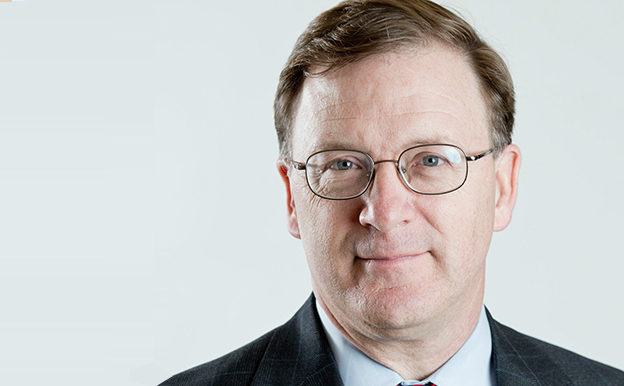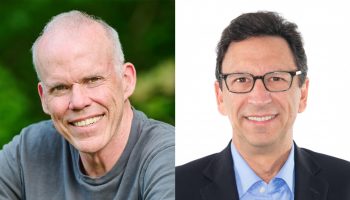NICK DANLAG – STAFF WRITER

When Robert Doar was 6 years old and Sen. Robert F. Kennedy set up a program to combat poverty, Doar’s father was asked to move to Brooklyn from Washington D.C. and help.
“I watched my father grapple with issues concerning helping people move up, and I was inspired by that,” said Doar, president of American Enterprise Institute, a public policy think tank. “I wanted to work in that field when I got of age, and I was always focused on trying to help our country get better through better domestic policy for people who are struggling the most.”
Doar served for 20 years in social service programs in New York and New York City. And at 10:30 a.m. Tuesday, Aug. 10 in the Amphitheater, Doar will present his lecture, titled “Poverty in America Before and After COVID,” as part of Week Seven’s theme of “The State of the Economy: Where Do We Go From Here?” He will discuss how the United States has been successful, and unsuccessful, in helping people get the resources they need to be above the poverty line, and how the country can help low-income Americans.
Doar has been the president of AEI for two years. In a 2019 speech, he quoted Irving Kristol, an American journalist known as the godfather of neoconservatism, that a think tank president “is someone who speaks with authority about subjects in which he has no particular competence.”
“You can’t be an expert in, really, more than one or two fields,” Doar said. “As president, I have to support and celebrate and promote the work of scholars in other fields. And that is a challenge. I don’t want to get outside of my lane and pretend that I’m an expert on everything when I’m not.”
AEI does not take institutional positions.
“We really offer people a great deal. They get to come and do their work, then promote their work in public policy, and they love it,” Doar said. “It’s a great place to work, because I’m around a lot of very smart people who are very devoted to their country and are trying to provide ideas that can make us stronger.”
And AEI promotes different perspectives within the organization.
“We’re not afraid to have people come and take a different perspective so that our audiences can see that debate. We are very strongly opposed to this practice of people staying in their own corners and shutting down speakers from different perspectives,” Doar said.
“That’s a form of illiberalism that we oppose very strongly.”
The organization also works closely with college students. As well as having worked closely with small groups of students across 100 campuses, AEI also invites around 300 students into their program. In this program, students come to Washington D.C. for four-week periods and take courses with their scholars.
“What’s just terrific is if you look at the biographies of these kids, they’re very diverse; they’re very interesting; they’re very committed; they’re very patriotic,” Doar said. “They want to learn, and they’re very capable, and so that’s been terribly exciting.”
Doar said there is an imbalance in Hollywood and academia, where conservatives find themselves outnumbered. He said everyone needs to make a larger effort to include all voices.
“Having said that,” Doar said, “I think the country is a little less overly progressive and liberal, and some of their resentments are caused by this sense that these other institutions, the media, the academic world, our culture is dominated by a certain perspective that they don’t agree with, and that their voices are heard or appreciated.”




